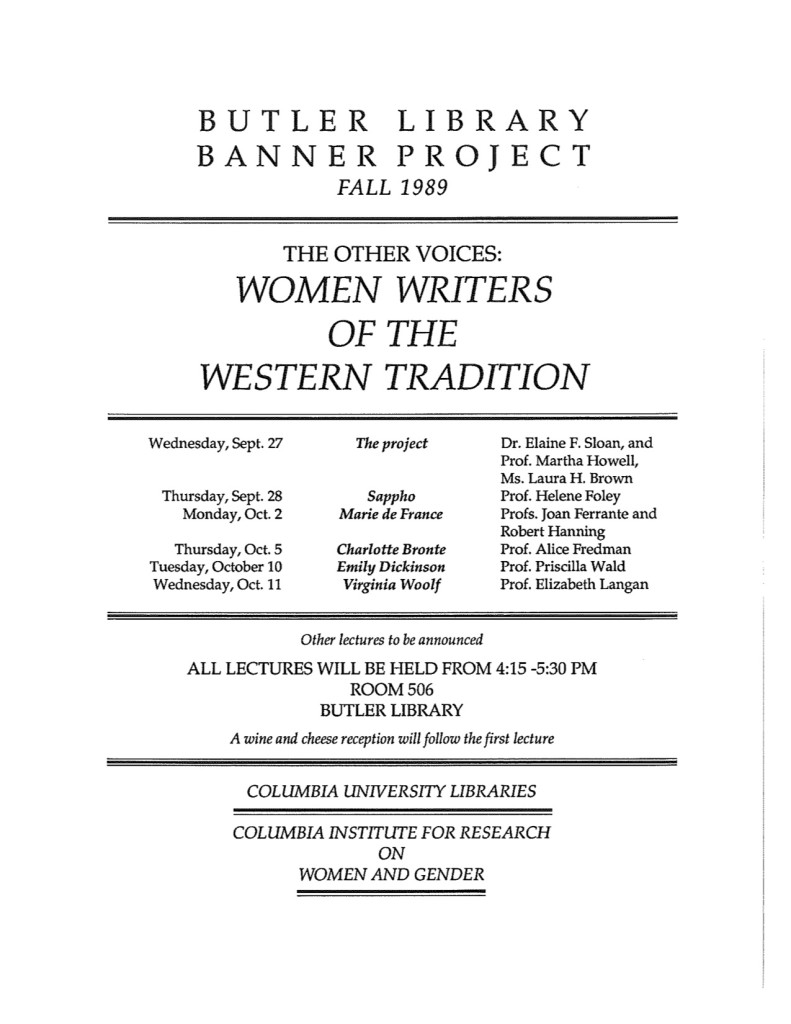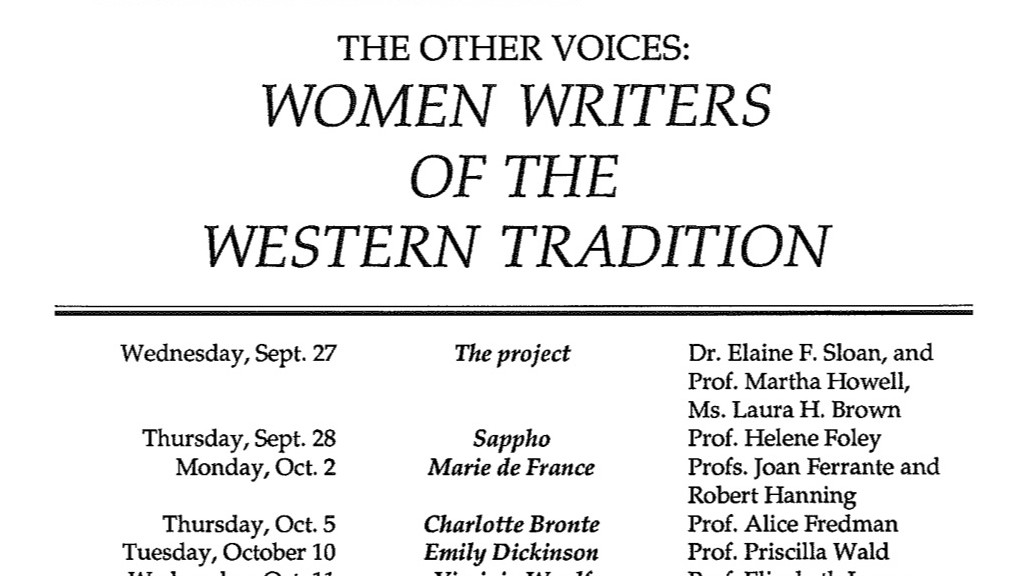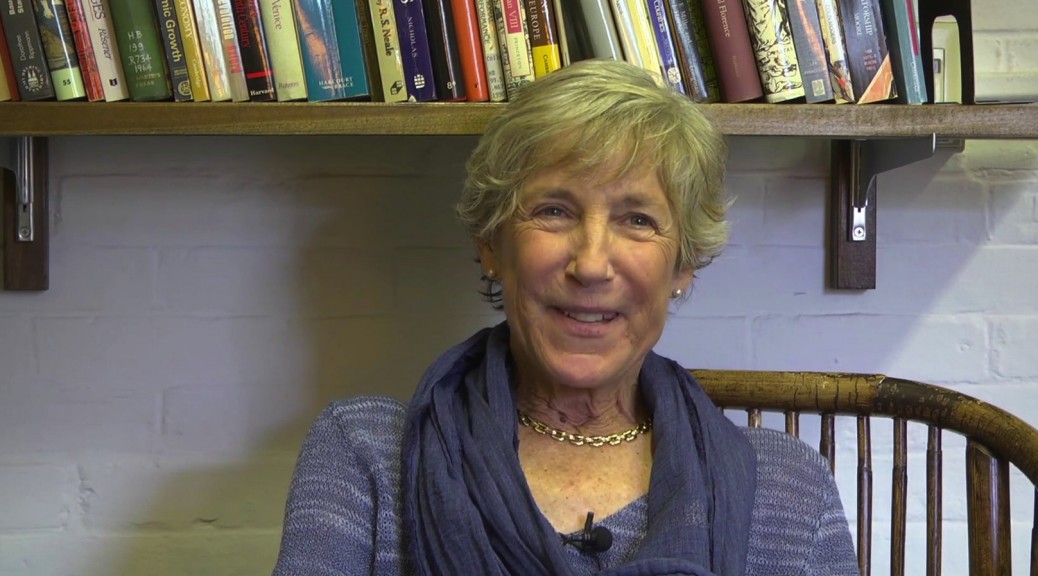
Category Archives: Martha Howell
“Why is there not the political will at Columbia to make gender issues central?”
MARTHA HOWELL
Miriam Champion Professor of History
IRWGS Director, 1989-94
Why is there not the political will at Columbia to make gender issues central to what they call general education at Columbia? I think that the problem is not that we haven’t institutionalized the study of gender in a way that makes it necessary that people take account of it. I mean, I think that’s part of the problem. Certainly at Columbia, it’s a big problem. I think it’s the political culture in the United States. I think that it’s both toxic and important. Race is a bigger issue in terms of what people think they have to think about as part of how this democracy works or doesn’t work. Social inequality in terms of income is now a bigger issue. The issues of gender are pretty far down the list, and some of that—you know, the backlash won. It maybe didn’t conquer, but it’s held its ground. Some of that has to do with the limitations of the women’s movement…
Now there’s feminist theory that is much more sophisticated, but that hasn’t been part of the conversation. I actually don’t have a good answer. I can describe what the problems are, but I don’t know quite how to fix them. It’s a refusal to consider the systematic social structure that produces the inequality. It’s so easy to talk about in individual terms. That’s a little bit the problem with feminism is that it’s not seen as—gender hierarchy isn’t seen as structural so much as a question of whether these women have these rights. I think we’d have to decide exactly where to pick our fight. I think if we just start screaming, we lose. So if we could mobilize around a particular issue that forced change—but I don’t know what that issue would be. You have to be able to get their ear. In other words, they have to take it seriously. It has to be an issue they, they, take seriously, or you won’t be heard. I think maybe it is time for us to be bad girls. We’re powerful now. There are too many of us.
“…what was needed was departmental buy-in”
MARTHA HOWELL
Miriam Champion Professor of History
IRWGS Director, 1989-94
Because I had run women’s studies at Rutgers, first as associate director and then as director when the existing director left, and in fact had been participating in it the whole time I was there, I knew a lot about the problems of a separate women’s studies program and the risks of isolating it too much and of politicizing it so much that it becomes a platform for protest and loses a kind of academic grounding. I was very aware that, at Columbia, that would be death because what we needed was departmental buy-in and administrative buy-in. We needed to be able to train graduate students and not to have faculty members saying, “What are you doing over there?” That required careful planning. I think one of the things that was a good thing to do was to build possibilities for people who do women’s studies with a disciplinary focus and, in fact, we required that. You did women’s studies with a grounding in political science or economics or history. We did a pre-med women’s studies major so that the women’s studies wasn’t dragged out or positioned as an alternative to a discipline but integrated in a discipline. We also thought it would be easier for the women—it was always women—who wanted to major in women’s studies to defend the choice to their parents. There are lots of places where there’s an argument that there is a methodology and a disciplinary project of women’s studies, and that what we should be doing is thinking about women’s studies as a discipline, not as a wedge that transforms disciplines. My opinion was that, at Columbia, we needed to think about it as the latter, and that was partly the politics of the institution decision.
Part of this came from struggles I had seen at Rutgers. The decision at Rutgers was like the decision we made here. Puerto Rican studies was my model of how not to do it because it had been carved out as a special discipline. It had no connection to history, Spanish, and the faculty in those disciplines didn’t take Puerto Rican studies seriously. So the students—and a lot of Rutgers students were Puerto Rican heritage or, in fact, they’d come from Puerto Rico themselves—they would be clustered in that department with no access. They could take undergraduate lecture courses in other disciplines, and I’m sure they got advice from their professors to do that, but they weren’t taken up by the disciplines. I never believed—and this is just me—that there really was a particular methodology of ethnic studies that could be separated from thinking systematically about the history, and using the methods of inquiry that historians use, or thinking about how economic systems work and studying economic sociology and then thinking about the Puerto Rican experience through that and then rethinking the models that come out of economic sociology once you inject that particular experience of this ethnic group in America. That’s an intellectual decision that I made, but the decision I made here was really governed as much by, I just thought it would fail as a program if we isolated it. Most people agreed.
“The other vision of what women’s studies should do and could do…”
MARTHA HOWELL
Miriam Champion Professor of History
IRWGS Director, 1989-94
Then we did the search for Maggie Sale as assistant director, an administrator position with instructional responsibilities. Maggie was—she came right out of women’s studies, very leftist. She was convinced that there was a discipline of women’s studies. She was, in a way, a breath of fresh air because what we were doing just mystified her. She couldn’t understand why we weren’t having a revolution, and she was very active. She organized junior faculty reading groups and things like that, worked on her scholarship with other young people, and had her own agendas that she pushed. It was good to have her here because she was that other vision of what women’s studies should do and could do. She was very good to have organized junior faculty.
One of the things—I mean, this is just Jean Howard’s and my blind spot. Jean founded—it’s still called the Jean Howard Reading Group. She started a reading group—it still exists—that’s only tenured women. The idea was that you can’t have a reading group where people are brutally honest with each other with untenured people. First, they won’t dare be critical, and you’ll crush them. You might have a lot of critical comments to make about a junior faculty’s work, but you need to do that privately. I thought Jean was right about that, but what that set up was, in other people’s minds—which we’re looking around saying, what?—that there was a secret group of senior women. Then there were more and more junior women. So Maggie immediately rectified that, and that was good. It set a precedent, I think, in which junior women get together. She said, “I’m starting a junior reading group. You won’t let me into yours.” She wanted to join ours. I said, “No, let me explain to you the logic,” and she looked at me like I was talking Turkish. There’s a logic to both sides. Now, I must say, that at Rutgers, there would have been no question but that untenured and tenured women were together. Graduate students would have been in the group. It was just a different place. Which was interesting, and it would have worked at Rutgers. Partly because at a state university you write your book, then you get it published with a good place, and you get good review, you get tenure. That doesn’t happen here.


